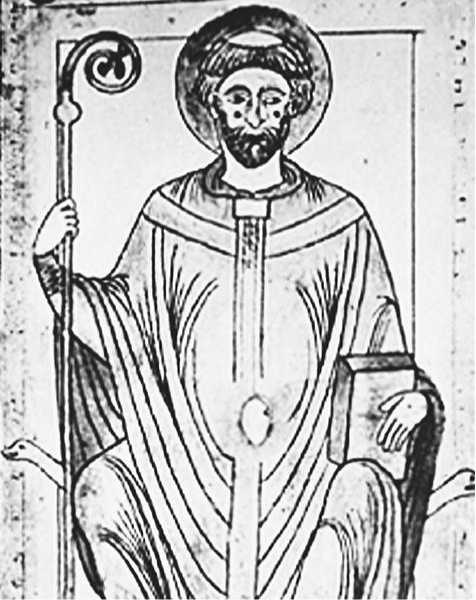Bernard's power and influence continued to rise, particularly when in 1145 a former monk who had studied under him at Clairvaux became Pope Eugenius III. This made Euge-nius, as head of the Catholic Church, the most powerful man in Western Europe—but since he took Bernard's advice on many matters, it was debatable who actually held more power.
In 1146, Eugenius called upon Bernard's help in a matter of great importance. Half a century earlier, the Catholic nations of Europe had mobilized for the First Crusade (1095-99), in which they seized control of the Holy Land from the Muslims. Now they had lost their stronghold at Edessa near Jerusalem, and the pope wanted to launch a

Bernard of Clairvaux was the object of harsh criticism after the Second Crusade, which he had promoted, proved to be a disaster. Reproduced by permission of the Library of Congress.
New crusade. Bernard, at first reluctant, finally agreed to preach a crusading sermon at Palm Sunday—the beginning of Easter week, the most important time of year for Christians.
The response to Bernard's mes-sage—he preached more such sermons, and sent out letters promoting the proposed crusade—was overwhelming. Some of that response, however, was unwelcome. One of the most awful aspects of the First Crusade was its unexpected arousal of antiSemitic attacks in which many Jews were killed and many others lost all their property. The dawning of a new crusade brought with it a new wave of anti-Jewish hatred, and among its leading proponents was a German Cistercian named Rudolph. Bernard denounced Rudolph, pointing out that Jesus Chrisf himself was a Jew.
The crusade turned out to be a disaster, and in the aftermath Bernard, who had earlier been celebrated, became the target of blame. Despite the failed project, Bernard continued to believe in the crusading ideal. He actively supported the Knights Templars, a group of warriors who claimed to be soldiers for Christ. In fact many Templars joined the group simply for personal gain, and often their behavior was savage.




 World History
World History









